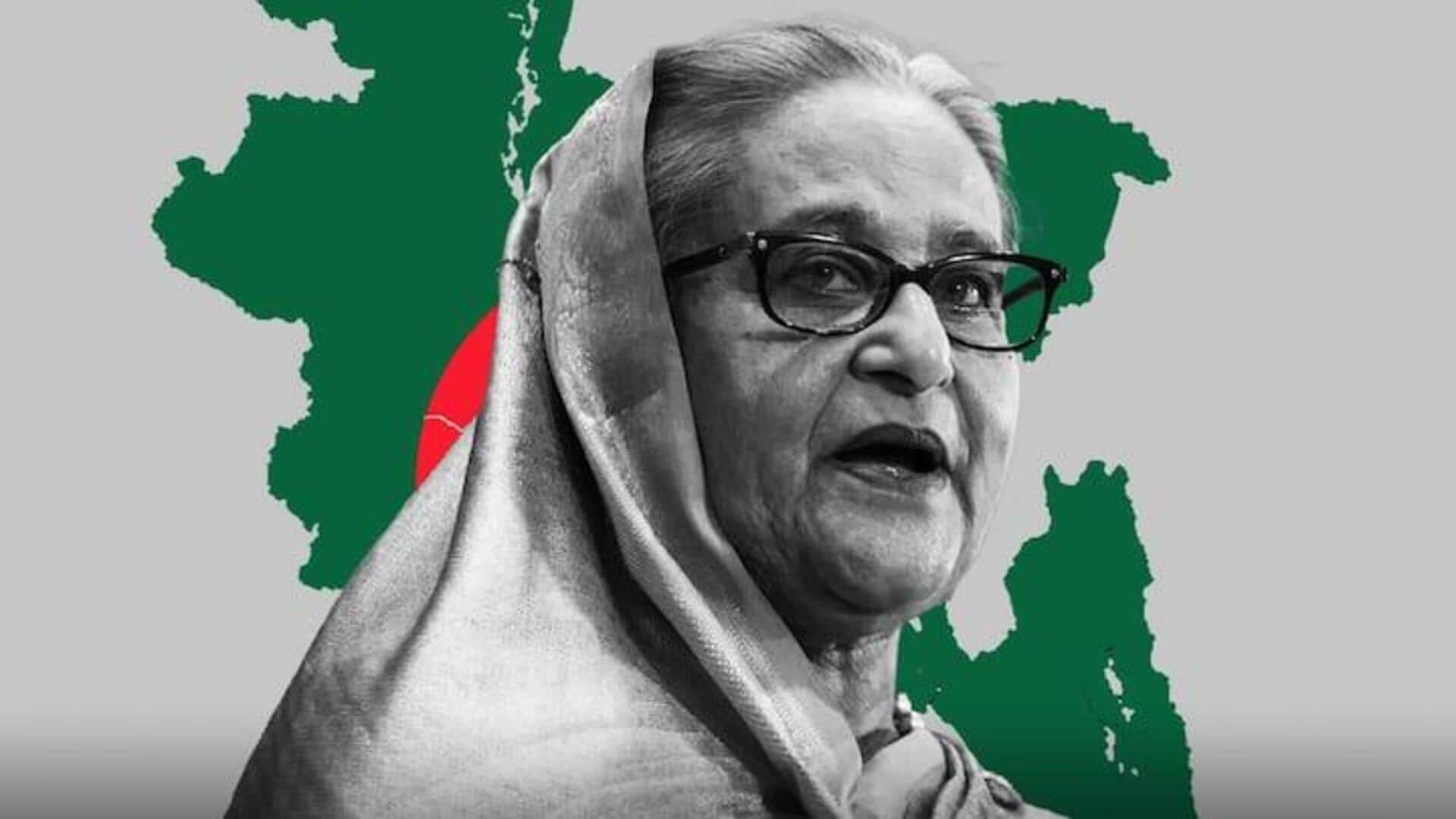
Bangladesh's interim government revokes diplomatic passports of Sheikh Hasina, ex-MPs
What's the story
Bangladesh's interim government has revoked all diplomatic passports issued to Members of Parliament (MPs) from the Sheikh Hasina era. This decision, announced by the country's home department, also includes the cancelation of former Prime Minister Hasina's diplomatic passport. Diplomatic passports, which offer various privileges such as visa-free travel to certain countries, were issued to the MPs, during Hasina's tenure as Prime Minister.
Context
Why does this story matter?
On August 6, amid widespread protests, Hasina—Bangladesh's longest-serving PM—resigned and fled to India. The student protests—which started in July with demands to abolish civil service job quotas—quickly grew into a wider anti-government movement. Over 230 people were killed in the nationwide violence following the fall of Hasina's Awami League government, raising the death toll to over 600 since the protests began. Hasina's government was succeeded by an interim administration, with 84-year-old Nobel laureate Muhammad Yunus appointed as its chief advisor.
Extradition pressure
Calls for Hasina's extradition
Reports suggest that Hasina's extended stay in India could lead to diplomatic challenges, particularly as Bangladesh has started to push for her return. However, experts point out that Bangladesh has not yet submitted an official extradition request, and even if they do, India is under no obligation to fulfill it. Recently, Bangladesh's main opposition party, the Bangladesh Nationalist Party, has called on India to extradite Hasina to stand trial for murder and other charges related to a student-led uprising.
Statement
Opposition party BNP's request to India
Hasina, accused of using force to suppress the protests, faces 31 cases, including 26 for murder, four for crimes against humanity and genocide, and one for abduction. BNP Secretary General Mirza Fakhrul Islam Alamgir urged India to legally hand over Hasina to the Bangladeshi government. He said, "It is our call to you that you should hand her over to the government of Bangladesh in a legal way."
Treaty details
Extradition treaty between Bangladesh and India
The extradition treaty between Bangladesh and India mandates the handover of individuals facing court proceedings for any "extraditable crime." This includes financial offenses punishable by a minimum of one year in prison. The BNP said the murder and extortion cases against Hasina fall within this category. "I am saying this strongly...we want to make it clear that I do not think that India can get much love from people by sheltering the enemy of the people of Bangladesh," he added.